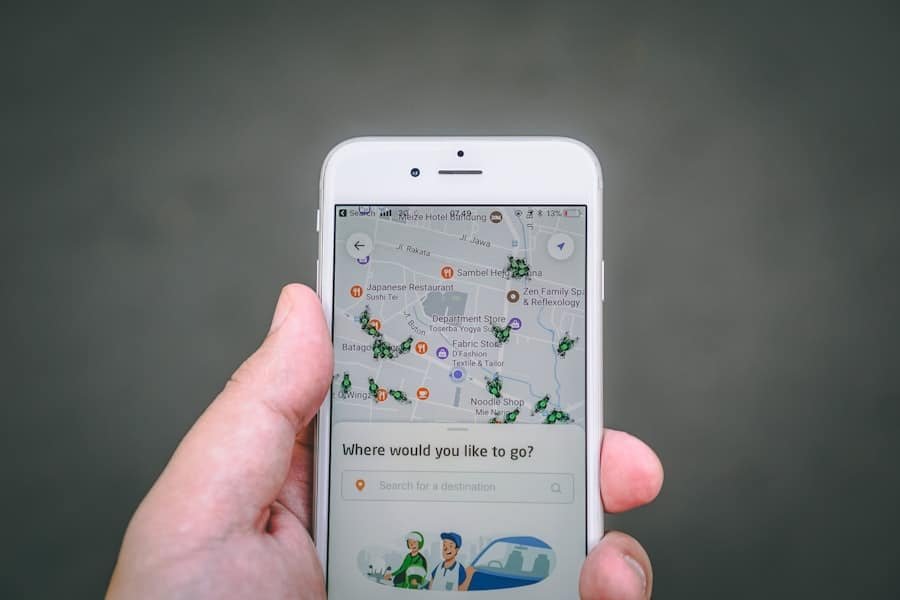The sharing economy, also known as the collaborative economy, is a socio-economic system centered on the sharing of resources, typically facilitated by digital platforms. This concept has gained prominence in recent years, exemplified by companies such as Airbnb, Uber, and TaskRabbit. The sharing economy enables individuals to directly rent or borrow goods and services from one another, bypassing traditional businesses.
This model encompasses a wide range of offerings, including accommodation, transportation, household items, and skills. The fundamental principles of the sharing economy are access over ownership, sustainability, and community building. This economic model has significantly altered perceptions of ownership and consumption.
It has created new avenues for individuals to monetize their assets and skills, while providing consumers with more affordable and convenient access to goods and services. The sharing economy has also fostered increased community engagement and trust among participants through direct person-to-person interactions. However, this model faces several challenges, including regulatory issues, concerns about labor rights, and potential disruption to traditional industries.
Despite these obstacles, the sharing economy continues to expand and evolve, with technological advancements playing a crucial role in its development and growth.
Key Takeaways
- The sharing economy refers to a socio-economic system built around the sharing of resources, often facilitated by technology platforms.
- Economic benefits of the sharing economy include cost savings for consumers, income opportunities for providers, and reduced environmental impact through resource optimization.
- Challenges of the sharing economy include regulatory issues, concerns about safety and quality standards, and potential negative impact on traditional industries.
- The sharing economy has disrupted traditional industries such as transportation, accommodation, and retail, leading to both opportunities and challenges for existing businesses.
- Government regulations play a crucial role in shaping the sharing economy, with the need to balance innovation and consumer protection. Technology has been a key enabler of the sharing economy, providing platforms for peer-to-peer transactions and enabling efficient resource allocation.
- The future outlook for the sharing economy is promising, with continued growth and innovation expected, but also the need for ongoing adaptation to address regulatory and societal concerns.
Economic Benefits of the Sharing Economy
Supplementing Income and Improving Financial Stability
One of the key advantages of the sharing economy is its potential to generate additional income for individuals. By renting out their underutilized assets or offering their skills and services, individuals can supplement their primary income and improve their financial stability. This can be particularly beneficial for those in need of flexible work arrangements, such as students, freelancers, or individuals with caregiving responsibilities.
New Opportunities for Entrepreneurship
Additionally, the sharing economy has created new opportunities for entrepreneurship, allowing individuals to start their own small businesses without the need for significant capital investment.
Promoting Sustainability and Reducing Waste
Furthermore, the sharing economy has the potential to reduce waste and promote sustainability. By sharing resources and utilizing existing assets more efficiently, the sharing economy can help to minimize overconsumption and reduce the environmental impact of production and consumption. For example, car-sharing services can help to reduce the number of vehicles on the road, leading to lower emissions and less congestion. Similarly, platforms that facilitate the sharing of household items or clothing can help to extend the lifespan of these goods, reducing the need for new production and minimizing waste.
Overall, the sharing economy has the potential to create a more sustainable and efficient economic system that benefits both individuals and the environment.
Challenges of the Sharing Economy

While the sharing economy offers numerous benefits, it also presents several challenges that need to be addressed. One of the primary challenges is the lack of regulation and oversight in many sharing economy sectors. This can lead to issues such as unfair competition, inadequate consumer protection, and potential safety concerns.
For example, in the accommodation sector, unregulated short-term rentals can lead to housing shortages and neighborhood disruptions. Similarly, in the transportation sector, concerns have been raised about the safety and labor rights of workers in ride-sharing services. Additionally, the lack of regulation can create tax evasion and revenue loss for governments.
Another challenge of the sharing economy is its potential impact on traditional industries. As sharing economy platforms continue to grow and expand, they can disrupt established businesses and industries, leading to job displacement and economic instability in certain sectors. For example, traditional taxi companies have faced significant competition from ride-sharing services like Uber and Lyft, leading to protests and legal battles in many cities.
Similarly, hotels have raised concerns about the impact of short-term rental platforms like Airbnb on their business. These challenges highlight the need for thoughtful regulation and policy development to ensure that the sharing economy operates in a fair and sustainable manner.
Impact of the Sharing Economy on Traditional Industries
The rise of the sharing economy has had a profound impact on traditional industries across various sectors. One of the most notable areas of impact is in transportation, where ride-sharing services like Uber and Lyft have disrupted the taxi industry. These services have provided consumers with more affordable and convenient transportation options while also creating new income opportunities for drivers.
However, this disruption has led to significant tensions between ride-sharing companies and traditional taxi operators, as well as concerns about labor rights and public safety. In the accommodation sector, platforms like Airbnb have transformed the way people travel and book accommodations. Airbnb has provided travelers with a wider range of lodging options at various price points, while also allowing individuals to monetize their spare space.
However, this has raised concerns about housing affordability and availability in some cities, as well as issues related to zoning regulations and tax compliance. Traditional hotels have also faced increased competition from short-term rental platforms, leading to calls for stricter regulation and oversight. Furthermore, the sharing economy has impacted other industries such as retail, finance, and healthcare.
For example, peer-to-peer lending platforms have disrupted traditional banking models by providing individuals and small businesses with alternative sources of financing. Similarly, online marketplaces and rental platforms have changed consumer behavior and purchasing patterns in the retail sector. The healthcare industry has also seen the emergence of new models for accessing healthcare services through telemedicine and health-sharing platforms.
Overall, the impact of the sharing economy on traditional industries underscores the need for adaptive strategies and policies to address these changes.
Government Regulations and the Sharing Economy
The rapid growth of the sharing economy has prompted governments around the world to grapple with how to regulate these new business models effectively. One of the key challenges for regulators is balancing innovation and consumer choice with public safety, fair competition, and labor rights. In many cases, existing regulations have struggled to keep pace with the rapid expansion of sharing economy platforms, leading to legal battles and uncertainty for both businesses and consumers.
In response to these challenges, some governments have implemented new regulations specifically tailored to the sharing economy. For example, many cities have introduced regulations for short-term rentals to address concerns about housing availability and neighborhood disruptions. These regulations often include limits on the number of days a property can be rented out each year, as well as requirements for hosts to register with local authorities and pay taxes.
Similarly, in the transportation sector, some jurisdictions have implemented rules for ride-sharing services related to driver background checks, vehicle inspections, insurance requirements, and pricing transparency. However, there is still significant variation in how different jurisdictions approach regulation of the sharing economy. Some governments have embraced a more permissive approach that prioritizes innovation and consumer choice, while others have taken a more restrictive stance aimed at protecting traditional industries and ensuring compliance with existing regulations.
The lack of consistency in regulation can create challenges for sharing economy businesses operating across multiple jurisdictions, as well as for consumers seeking clarity on their rights and protections.
The Role of Technology in the Sharing Economy

Streamlining Operations and Improving User Experience
Technology has enabled real-time communication between users, allowing for seamless coordination of logistics and scheduling. Moreover, it has enabled new business models that leverage data analytics and algorithms to optimize resource allocation and match supply with demand more efficiently. For instance, ride-sharing services use algorithms to match drivers with passengers based on location and availability, while accommodation platforms use data analytics to set pricing based on demand fluctuations.
Expanding Access to the Sharing Economy
These technological advancements have helped to expand access to the sharing economy across different demographics and geographic regions. Mobile technology has made it possible for individuals in remote or underserved areas to participate in the sharing economy by connecting them with potential customers or service providers.
Democratizing Access to Economic Opportunities
Ultimately, technology has played a crucial role in democratizing access to economic opportunities and reducing barriers to entry for individuals looking to participate in the sharing economy. By providing a platform for people to connect and share resources, technology has helped to create a more inclusive and equitable economy.
Future Outlook for the Sharing Economy
The future outlook for the sharing economy is one of continued growth and evolution. As technology continues to advance and consumer behaviors shift towards more sustainable and cost-effective consumption patterns, the sharing economy is likely to become an increasingly integral part of our economic landscape. However, this growth will also bring new challenges that will need to be addressed by policymakers, businesses, and society at large.
One area of focus for the future will be on developing more robust regulatory frameworks that strike a balance between fostering innovation and ensuring fair competition, consumer protection, and labor rights within the sharing economy. This will require collaboration between governments, industry stakeholders, and community representatives to develop policies that are responsive to the unique characteristics of sharing economy business models while also upholding public interest. Another key consideration for the future of the sharing economy will be its potential impact on employment dynamics and income inequality.
As more individuals participate in gig work or share their assets through platforms, there will be a need to address issues related to job security, benefits access, and income stability for workers in these sectors. This will require innovative approaches to labor policy that recognize the changing nature of work in the digital age. Overall, the future outlook for the sharing economy is one of promise and potential.
By harnessing technology and fostering collaboration between stakeholders, we can build a more inclusive and sustainable economic system that benefits individuals, communities, and the environment. As we navigate this transition towards a more sharing-oriented economy, it will be essential to prioritize fairness, transparency, and accountability in order to realize its full potential for positive social impact.
If you’re interested in learning more about the economic impacts of the sharing economy, you should check out the article “The Rise of the Gig Economy and Its Impact on Traditional Employment” on The Econosphere. This article delves into the ways in which the gig economy is reshaping traditional employment and the potential benefits and challenges that come with this shift. It’s a fascinating read for anyone looking to understand the evolving economic landscape.
FAQs
What is the sharing economy?
The sharing economy is an economic model based on sharing underutilized assets or services, typically facilitated by technology platforms.
What are the economic benefits of the sharing economy?
The sharing economy can lead to increased efficiency and utilization of resources, lower costs for consumers, and the creation of new income opportunities for individuals.
What are the challenges of the sharing economy?
Challenges of the sharing economy include regulatory issues, concerns about labor rights and worker protections, and potential negative impacts on traditional industries.
How does the sharing economy impact traditional industries?
The sharing economy can disrupt traditional industries by offering alternative and often more affordable options for consumers, leading to decreased demand for traditional services.
What are some examples of the sharing economy in action?
Examples of the sharing economy include ride-sharing services like Uber and Lyft, accommodation platforms like Airbnb, and peer-to-peer lending platforms like Lending Club.








